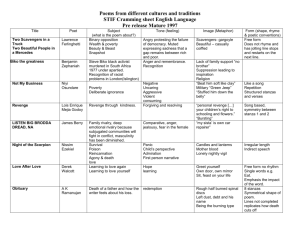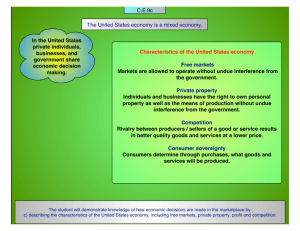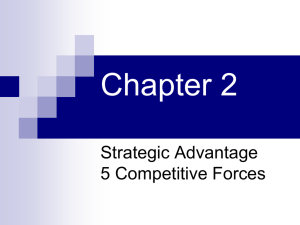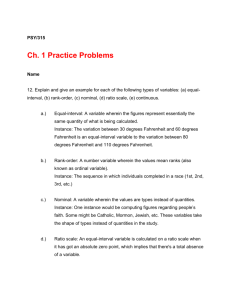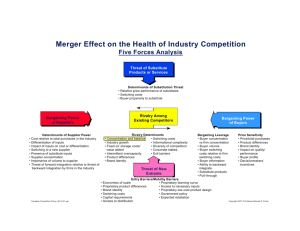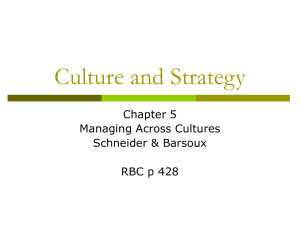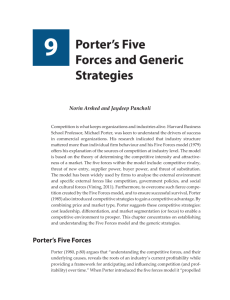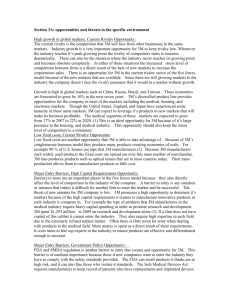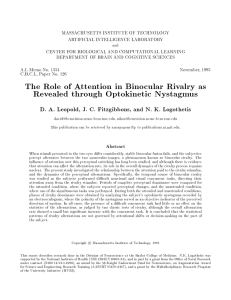Competitive Rivalry Syllabus - NCWC: Faculty Pages
advertisement
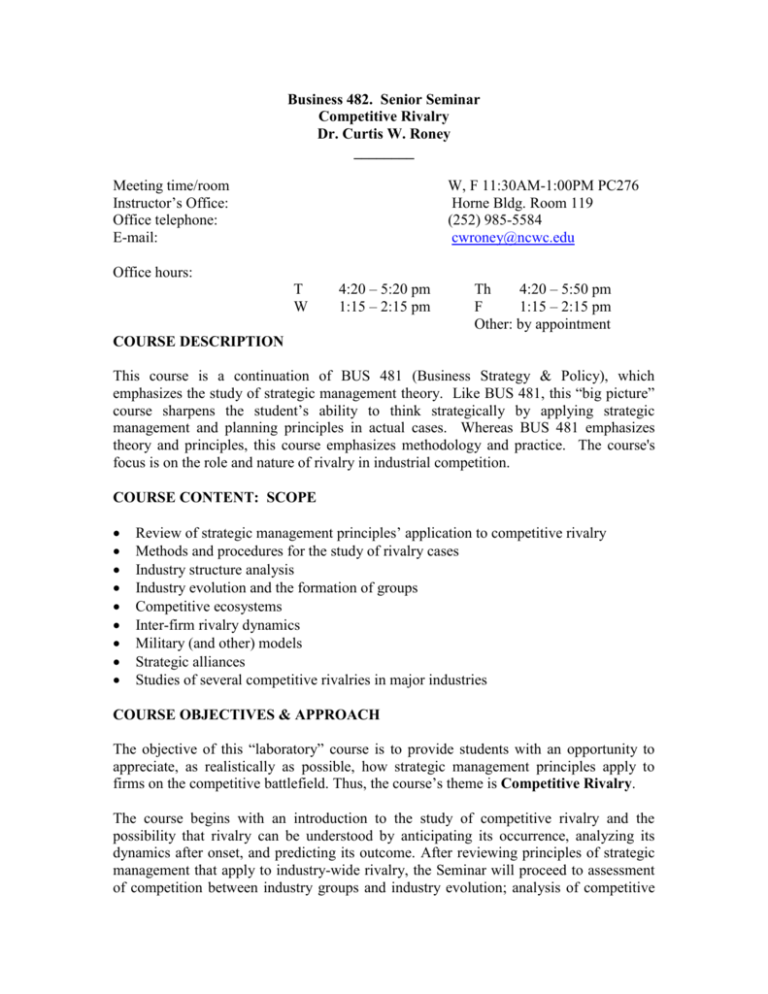
Business 482. Senior Seminar Competitive Rivalry Dr. Curtis W. Roney ________ Meeting time/room Instructor’s Office: Office telephone: E-mail: W, F 11:30AM-1:00PM PC276 Horne Bldg. Room 119 (252) 985-5584 cwroney@ncwc.edu Office hours: T W 4:20 – 5:20 pm 1:15 – 2:15 pm Th 4:20 – 5:50 pm F 1:15 – 2:15 pm Other: by appointment COURSE DESCRIPTION This course is a continuation of BUS 481 (Business Strategy & Policy), which emphasizes the study of strategic management theory. Like BUS 481, this “big picture” course sharpens the student’s ability to think strategically by applying strategic management and planning principles in actual cases. Whereas BUS 481 emphasizes theory and principles, this course emphasizes methodology and practice. The course's focus is on the role and nature of rivalry in industrial competition. COURSE CONTENT: SCOPE Review of strategic management principles’ application to competitive rivalry Methods and procedures for the study of rivalry cases Industry structure analysis Industry evolution and the formation of groups Competitive ecosystems Inter-firm rivalry dynamics Military (and other) models Strategic alliances Studies of several competitive rivalries in major industries COURSE OBJECTIVES & APPROACH The objective of this “laboratory” course is to provide students with an opportunity to appreciate, as realistically as possible, how strategic management principles apply to firms on the competitive battlefield. Thus, the course’s theme is Competitive Rivalry. The course begins with an introduction to the study of competitive rivalry and the possibility that rivalry can be understood by anticipating its occurrence, analyzing its dynamics after onset, and predicting its outcome. After reviewing principles of strategic management that apply to industry-wide rivalry, the Seminar will proceed to assessment of competition between industry groups and industry evolution; analysis of competitive ecosystems; inter-firm rivalry; competitive moves (offensive and defensive); strategic initiative; military models and other analogies; and, finally, alternatives to direct confrontation such as alliances and joint ventures. During the entire course, teams of class members will conduct in-depth rivalry case analyses, guided by the instructor. The scope of these analyses will include the strategic situation; the external environment; rivals’ performance trends and capabilities, their goals, strategies, and motives to attack or retaliate; their competitive moves and strategic initiatives; considerations for strategy implementation; and rivalry outcomes to date. Team members will present their findings and conclusions to the class. Conclusions will address the impacts of rivalry on each competitor. Alternative actions that might have been taken by each rival to improve its outcome also will be considered, and recommendations will be formed for maximizing the competitive advantage of each rival. Each student then will prepare and submit a complete report of the team's analysis. EXPECTATIONS AND ASSESSMENT OF THE STUDENT Students are required to have completed BUS 481 (Strategic Management) before taking BUS 482. Thus, this syllabus assumes that students already are able to apply general strategic management principles to the cases that they study in this course. Students should review relevant text chapters from their Business 481 courses as required to refresh their recollections of strategic management principles. Quizzes will be given throughout the course and there will be three tests on principles of competitive rivalry covered by text materials and class lectures. A final examination will be based on the cases discussed in class and the strategic rivalry principles that they demonstrate. As a matter of respect to their colleagues, all students are expected to attend each seminar meeting. Absences from these classes normally will not be excused and more than two absences (three class hours) may result in dismissal of the absent student from this course. TEXT Roney, Curtis (ed). Competitive Rivalry: A Collection Of Reading & Study Materials. August, 2006. North Carolina Wesleyan College ASSESSMENT OF LEARNING Quizzes Tests on rivalry principles Team project Presentation Report Final exam Max. Points 15 30 35 15 20 20 ______ Total 100
